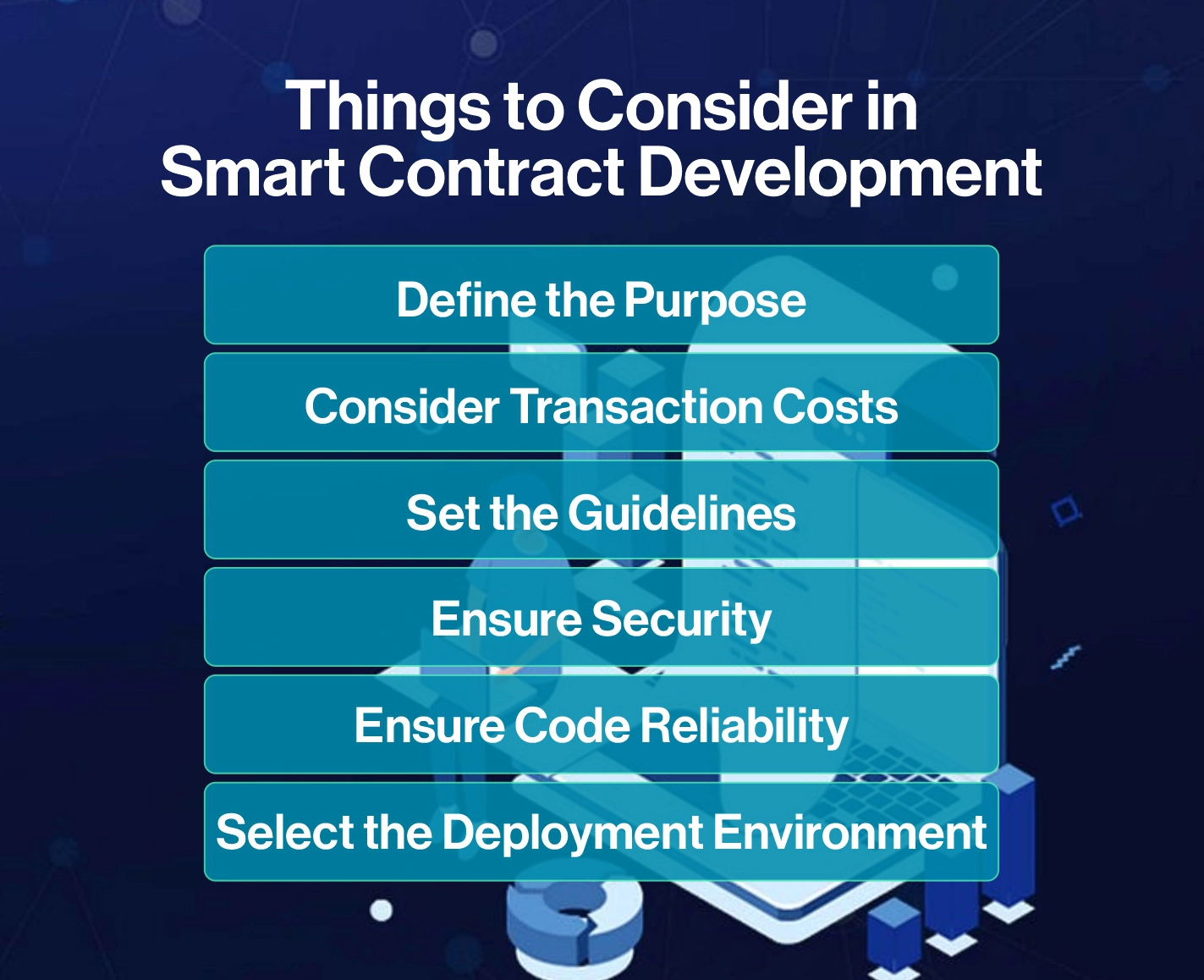Did you know companies typically allocate around 3% of their revenue to expenses like paper, printing, and storage? These traditional methods not only consume time but also require considerable investments. That's why smart contract development has gained popularity among companies worldwide.
However, one of the main hurdles in adopting this technology is the widespread misunderstanding surrounding it, especially among those unfamiliar with blockchain. We'll explain smart contract development in this article.
What is a Smart Contract?
A smart contract is an electronic contract that uses a distributed and decentralized ledger system (DTS) and blockchain technology. These contracts function as digital protocols that enable, confirm, or carry out agreement negotiation and fulfillment by automatically executing certain activities when predefined circumstances are satisfied.
Unlike conventional contracts, which depend on middlemen such as banks or attorneys to verify the terms, smart contracts utilize programming to automatically enforce performance. Transactions occur digitally, eliminating the need for third parties.
For example, consider a rental agreement. Digital keys or an access code to the property are automatically sent when the renter sends the cash due to the address in the smart contract.
Things to Consider in Smart Contract Development

Define the Purpose
Clarifying the goal and parameters of the contract is crucial before beginning to construct Smart Contracts. Decide the use case or piece of business logic the smart contract will address. Whether the goal is to automate financial transactions, manage a supply chain agreement, or streamline token transfers, having a clear purpose will guide the development process and guarantee that the contract achieves its goals.
Consider Transaction Costs
The transaction costs required to carry out activities on a Blockchain network are known as gas fees. It's crucial to consider these costs while developing Smart Contracts on different Blockchain systems. For example, Ethereum is highly renowned for its ability to construct Smart Contracts, but it occasionally has high gas prices, particularly when the network is busy.
Consider looking at other solutions, such as Solana or Binance Smart Chain, which frequently provide less costs and quicker transaction speeds. Selecting the appropriate Blockchain can have a significant impact on your Smart Contracts' cost and effectiveness.
Set the Guidelines
Coded into smart contracts are predefined rules and conditions that govern how they operate. To make sure the contract works as intended, these rules must be precisely defined. Indicate the terms and conditions that must be fulfilled for the contract to be executed, including the input requirements, validation standards, and the course of action to be followed. For Ethereum and Polkadot, use programming languages like Solidity or Rust to create clear, concise Smart Contract code that precisely expresses the intended logic and rules.
Ensure Security
To minaimize flaws that might lead to financial losses or be exploited by malevolent parties, security is crucial while developing Smart Contracts. Follow recommended practices for the security of smart contracts, such as input validation, access control, and defenses against frequent attack vectors such as integer overflow and reentrancy. Use security tools for automatic security audits, such OpenZeppelin and MythX, to find any vulnerabilities. To further improve the security of your Smart Contract, get input from the developer community and submit it to peer review.
Ensure Code Reliability
To ensure that Smart Contracts are dependable and functioning, testing is essential. Use a comprehensive testing strategy that includes end-to-end, integration, and unit testing to verify how the contract behaves in various circumstances. Use testing frameworks such as Truffle and Ganache to automate the procedure and replicate various scenarios, such as border cases and edge cases. Before deploying the contract to the main net, thoroughly test it on TestNet environments to find and fix any faults or difficulties as soon as possible.
Select the Deployment Environment
Choosing the right deployment environment is crucial for successful Blockchain Smart Contract development. Factors like network scalability, decentralization, and governance must be considered. Based on the specifications of the Smart Contract and the desired use case, consider a range of possibilities, including as permissioned platforms, private consortium networks, and public Blockchains. Make sure the setting you select is consistent with the decentralization and transparency that are fundamental to blockchain technology.
Smart Contract Development Basics
Smart contract development involves translating business logic into code interacting with the blockchain. Below are the key components to get started:
Programming Languages
Not all languages are suitable for smart contracts. Common ones include:
- Solidity: It is designed for the Ethereum Virtual Machine (EVM) and has a JavaScript-like syntax, making it user-friendly for JavaScript developers.
- Vyper: Known for its focus on security and strict type checking, it is ideal for EVM-compatible blockchains.
- Rust: Gaining popularity for its safety features and error prevention.
Tools and Platforms
Development requires specialized tools and platforms:
- Integrated Development Environments (IDEs): IDEs, such as Remix and Truffle, offer environments for writing, testing, and deploying contracts.
- Blockchain Test Frameworks: Vital for testing contract functionality and security. Examples include Truffle Suite and Hardhat.
- Blockchain Platforms: Each blockchain has its own tools and languages; for example, Ethereum supports Solidity via Remix, while Hyper ledger Fabric uses Go and its own SDK.
Smart Contract Development Services
Experts or businesses offering services for developing, coding, testing, and implementing smart contracts on blockchain networks are known as smart contract development firms.Examples include:
- Smart contract design: Based on business needs, experts create the functionality, structure, and architecture
- Smart contract coding: Developers use languages like Vyper or Solidity to develop code
- Testing and debugging: Ensuring contracts function correctly and are secure
- Deployment and integration: Putting contracts on blockchain networks and integrating them with desired applications
- Security audits: Identifying vulnerabilities in contracts
- Upgrades and maintenance: Keeping contracts up to date
- Consulting: Providing expertise on development best practices, standards, and compliance
Conclusion
Smart contract development is leading the way in blockchain innovation, showing great potential to transform industries. While challenges exist, ongoing research is narrowing these gaps, paving the way for widespread adoption.

